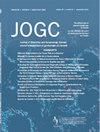孕期亲密伴侣暴力的筛查与干预:幸存者的视角。
IF 2
Q2 OBSTETRICS & GYNECOLOGY
引用次数: 0
摘要
目的:亲密伴侣暴力(IPV)对妇女健康构成严重威胁,特别是在怀孕期间。尽管怀孕是IPV筛查的关键机会,但各种障碍往往阻碍医疗保健提供者筛查IPV的努力。本研究旨在了解从IPV幸存者如何医疗保健提供者可以更好地筛查和解决怀孕期间IPV。方法:通过Facebook广告招募怀孕期间经历过IPV的女性。一个网站提供了研究细节和同意书。在同意后,参与者完成了一项涵盖四个主题的调查:个人人口统计、妊娠期IPV筛查、披露障碍和提供的干预措施。除了完成调查外,还邀请提供书面意见。结果:这项初步研究涉及23名在怀孕期间经历过IPV的参与者。17人报告童年受到虐待,19人在怀孕之外遭受虐待。虽然所有参与者都支持产前保健提供者进行IPV筛查,但只有8人接受了筛查。与口头评估相比,人们更倾向于使用书面工具,以提高舒适度和私密性。披露的障碍包括害怕伴侣报复、讨论IPV时感到不舒服、担心保密以及可能涉及儿童保护服务。提供的干预措施有限,心理健康支持和社会服务被确定为关键资源。结论:研究结果支持有必要改进筛查做法和综合支持系统,以解决经历IPV的孕妇的复杂需求,特别是考虑到其患病率及其与儿童创伤的关系。加强标准化指南、卫生保健提供者培训和信息披露支持对于促进母亲及其子女获得更健康的结果至关重要。本文章由计算机程序翻译,如有差异,请以英文原文为准。
Screening and Interventions for Intimate Partner Violence in Pregnancy: The Perspective of Survivors
Objectives
Intimate partner violence (IPV) poses serious risks to women's health, especially during pregnancy. Despite pregnancy being a key opportunity for IPV screening, various barriers often hinder health care provider efforts to screen for IPV. This study seeks to understand from IPV survivors how health care providers can better screen for and address IPV during pregnancy.
Methods
Women who had experienced IPV during pregnancy were recruited via Facebook ads. A website provided study details and a consent form. After consenting, participants completed a survey covering 4 main themes: personal demographics, IPV screening in pregnancy, barriers to disclosure, and interventions offered. Written comments were invited in addition to survey completion.
Results
This pilot study involved 23 participants who experienced IPV during pregnancy. Overall, 17 reported childhood abuse and 19 had experienced abuse outside of pregnancy. Although all participants supported IPV screening by health care providers during prenatal care, only 8 were screened. There was a preference for written tools over verbal assessments to enhance comfort and privacy. Barriers to disclosure included fear of partner retaliation, discomfort discussing IPV, concerns about confidentiality, and potential involvement of child protection services. Interventions offered were limited, with mental health support and social services identified as critical resources.
Conclusions
Findings support the need for improved screening practices and comprehensive support systems to address the complex needs of pregnant individuals experiencing IPV, particularly given its prevalence and ties to childhood trauma. Enhancing standardized guidelines, health care provider training, and disclosure support are essential for promoting healthier outcomes for mothers and their children.
求助全文
通过发布文献求助,成功后即可免费获取论文全文。
去求助
来源期刊

Journal of obstetrics and gynaecology Canada
OBSTETRICS & GYNECOLOGY-
CiteScore
3.30
自引率
5.60%
发文量
302
审稿时长
32 days
期刊介绍:
Journal of Obstetrics and Gynaecology Canada (JOGC) is Canada"s peer-reviewed journal of obstetrics, gynaecology, and women"s health. Each monthly issue contains original research articles, reviews, case reports, commentaries, and editorials on all aspects of reproductive health. JOGC is the original publication source of evidence-based clinical guidelines, committee opinions, and policy statements that derive from standing or ad hoc committees of the Society of Obstetricians and Gynaecologists of Canada. JOGC is included in the National Library of Medicine"s MEDLINE database, and abstracts from JOGC are accessible on PubMed.
 求助内容:
求助内容: 应助结果提醒方式:
应助结果提醒方式:


